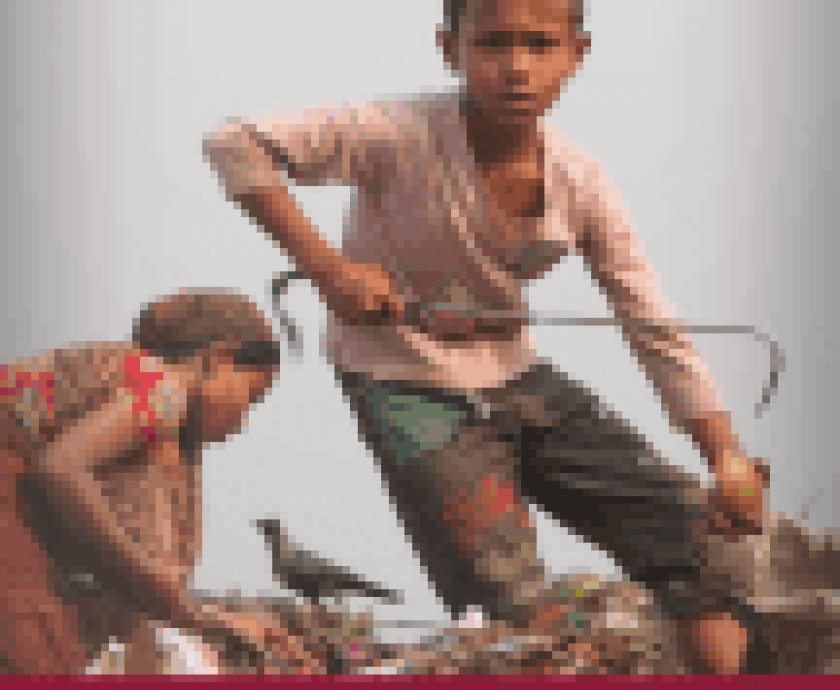During the past four years, boys and girls in Iraq have endured immense suffering at the hands of ISIL, and have been negatively impacted by operations by the Government of Iraq and its allies to counter ISIL, and continue to carry the dramatic consequences of hostilities, highlights the third report of the Secretary-General on Children and Armed Conflict in Iraq covering the period from July 2015 to July 2019.
Despite the end of the so-called caliphate, the security situation remains fragile and children of Iraq continue to bear the brunt of violence. Hundreds of boys and girls still remain detained for their actual or alleged association with ISIL (at least 778 children in June 2019); schools have been damaged and access to education impacted; humanitarian access remains challenging; and the contamination of Iraqi territory by ERW and IEDs remains of great concern.
“Children of Iraq have tragically suffered in the past years and it is urgent to take strong measures to remove remaining threats. Children actually or allegedly associated with armed groups, including those designated as terrorist by the UN, should be considered primarily as victims and their detention, including for children of foreign origin, should only be used as a measure of last resort and for the shortest period of time,” said the Special Representative of the Secretary-General for Children and Armed Conflict, Ms. Virginia Gamba.
Overall, 1,722 children have been killed or maimed during the reporting period mainly due to cross-fire, airstrikes, artillery shelling, mortars and rocket attacks as well as ERW in areas vacated by ISIL; actual figures are likely to be higher owing to access and security constraints. Respect for international humanitarian law by all parties to conflict, including the principles of distinction, proportionality, and precaution, posed serious concerns.
The recruitment and use of 296 children was verified; attacks on schools were particularly harmful with 236 verified incidents, in addition to the military use of 79 schools. Though the verified numbers for rape and other forms of sexual violence remain low (10), actual numbers are likely higher as fear of stigma, reprisal and lack of resources prevent victims from reporting the violation. The situation of displaced populations was particularly dire with more than 2.2 million civilians, including at least one million children internally displaced during the reporting period.
Measures to Better Protect Children
Nonetheless, important steps for the protection of boys and girls have been taken by authorities in Iraq. The Special Representative commended the Government for finalizing its National Child Protection Policy in December 2017 and called for its complete implementation. She further encouraged the Government to pursue its engagement with the United Nations to develop and adopt an action plan to end and prevent the recruitment and use of children by the Popular Mobilization Forces.
“The pursuit of accountability for perpetrators, including for war crimes or crimes against humanity, will be crucial in the recovery of victims of ISIL, including children. I call on the Government of Iraq to speed-up its work to prevent grave violations against children, including the criminalization of the recruitment and use of children through the adoption of a comprehensive Child Rights Law,” Special Representative Gamba added. She further called for the immediate repatriation of all foreign children and the development of specialized child-protection programmes to ensure their full reintegration.
She welcomed the Government’s special administrative process to register children born of rape and encouraged its deployment nationally. She called on the Government to issue birth certificates or identification cards to allow all children in Iraq to access public assistance and basic services, and for the Government to ensure that all children benefit from humanitarian assistance without discrimination.
“Reintegration of all children released from armed groups and forces is fundamental for their recovery and benefits the country as a whole in its reconciliation. I reiterated my call on the international community to support the reintegration of released children, including through the Global Coalition to Support Reintegration of Former Child Soldiers launched with UNICEF,” said the Special Representative.
She commended the work of protection and humanitarian partners on the ground who are doing tremendous work to protect children in extremely precarious conditions; she called on the international community to ensure that child protection actors are provided with the adequate political and financial support to enable them to fulfill their mandate.
Key numbers from July 2015 to July 2019 (all verified numbers)
Grave violations: 2,114 grave violations against children. *Verified grave violations peaked in 2015 and 2016 during military confrontations and most took place in Ninewa and Salah al-Din governorates.
Recruitment and use: 296 children including 9 girls. More than 50% recruited and used by ISIL.
Detention: at least 778 children in pre and post-trial detention on national security-related charges in June 2019.
Killing and maiming: 1,722 children killed or maimed.
Rape and other forms of sexual violence: 10 children.
Abduction: 86 children.
Attacks on schools and hospitals: 236 attacks on schools; 24 attacks on hospitals.
Denial of humanitarian access: 7 incidents *** Actual figures are likely higher as the verification of denial of humanitarian access incidents was particularly challenging during the reporting period, for security and access constraint.
Note to editors:
Parties to conflict in Iraq listed in the 2019 Secretary-General Report on Children and Armed Conflict
List A – parties that have not put in place measures during the reporting period to improve the protection of children
Islamic State in Iraq and the Levant (Recruitment and use of children; Killing and maiming of children; Rape and other forms of sexual violence against children; Abduction of children; Attacks against schools or hospitals)
List B – parties that have put in place measures during the reporting period aimed at improving the protection of children
Popular mobilization forces (Recruitment and use of children)
For additional information, please contact:
Fabienne Vinet, Communications Officer, Office of the Special Representative of the Secretary-General for Children and Armed Conflict
+1-212-963-5986 (office) / +1-917-288-5791 (mobile) / vinet@un.org
Follow us on Twitter and Facebook:
www.twitter.com/childreninwar
www.facebook.com/childrenandarmedconflict




